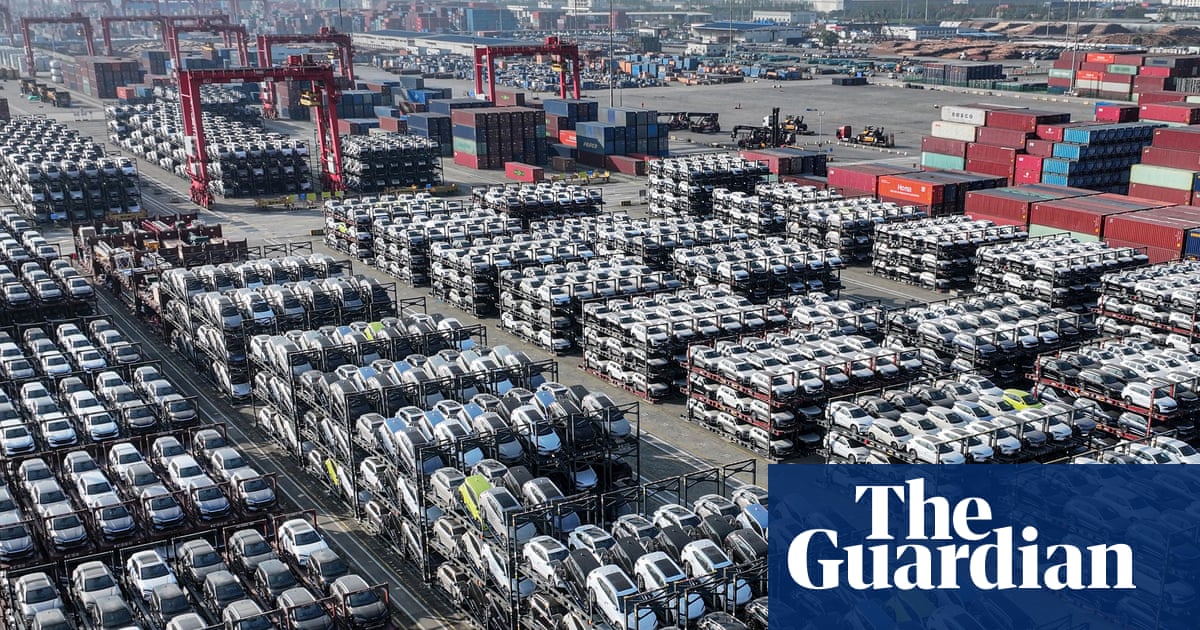Ed Miliband may want his political legacy to be a transition to net zero, but he could find his eventual political epitaph includes words on how he helped bury UK industry under the weight of high electricity charges.
Industrial ovens are being switched off and turbines spun for the last time as businesses add up the cost of powering their factories and decide it’s not worth the time and trouble.
It would be harsh to blame the energy secretary for a crisis he inherited and a decline in manufacturing that has been going on for four decades. But the way the transition to renewables was managed under the Tories, and now under Miliband can only be described as a disaster that will see much of UK industry depart for an easier life elsewhere.
The decline is not new. Each time a government has allowed the pound to rise in value – making exports more expensive – or ministers have opened the door to cheap imports, the number of UK factories has shrunk. On a graph the decline appears as a series of cliff edges, with manufacturing taking a step down each time the government’s protective spirit fails.
Analysis published by the Office for National Statistics (ONS) in May charted the more recent lurch downwards in output in the UK’s energy-intensive manufacturing industries. Output at the end of 2024 was at its lowest in 35 years.
This large disparate group includes companies – most of them operating in international markets – that make paper, chemicals, plastic, processed food and all kinds of metal products.
The ONS said: “Collectively, the volume of output in these industries has fallen by one-third since the start of 2021 and is now at its lowest level since the start of the available time series in 1990.”
That is great for UK carbon emission figures, but terrible for the future of the country’s industrial base.
A short-term solution would be to restore pandemic-related subsidies. Without bigger handouts to cover sky high electricity bills, factory owners, most of whom operate on thin profit margins, will need to put up their prices, and if that is not possible, cut production as they clearly have in recent years.
Miliband could shell out if he had the money, but the chancellor, Rachel Reeves, is feeling the pinch and prefers to subsidise other things
Meanwhile, factory owners face further cost increases as they are asked to pay the extra bill for upgrading the country’s electricity grid through higher network charges. Worse, a scheme to protect the 500 most-intensive energy users from next year will be funded by all factories and businesses, making a bad situation worse for the vast majority.
The UK is not alone in paying a heavy toll for travelling haphazardly along the road to net zero. Germany is going through the same pain barrier after a series of energy price increases since Russia’s invasion of Ukraine in 2022.
By some measures, German electricity prices are the highest in Europe, marginally ahead of those in the UK. Both countries charge industry more than four times the average electricity price in the US. To keep subsidies to a minimum, they need a long-term solution to be implemented now that will reduce costs over the longer term.
The problem for Reeves is that, like so many areas of government, it means a large upfront cost.
Still, that should not be an impediment. Miliband has already spent more than £2bn this year balancing the electricity system as renewables produce too much in some places and periods, while shortfalls from green energy elsewhere (when the wind refuses to blow) mean expensive gas plants must fire up.
after newsletter promotion
The system pays windfarm operators to switch off their turbines and more importantly, gas operators to step in at short notice. Usually at huge cost.
Miliband could adopt a plan put forward by the Stonehaven consultancy, backed by Greenpeace, which would more closely regulate price-gouging gas plants.
“Gas provided just 30% of the UK’s total electricity generation last year, however gas-fired power stations set the wholesale price of electricity the vast majority of the time – 97% in 2021 – enabling them to extract ‘scarcity rents’ and push up energy bills,” said Greenpeace.
Subsidies today and major investments, funded by the taxpayer, to bring down business electricity prices may seem like an unaffordable gift to factory owners. But that would be to misunderstand the way heavy industries operate.
These companies are mobile and considered by other countries to be prized assets, often forming part of vital supply chains. While they can be loss-making when global prices fall, they support other manufacturing businesses and service industries that form the bedrock of an economy.
The UK’s modern industrial strategy, which was published in the summer, pays lip service to industry when action is needed.
Miliband, and more importantly Reeves, seem paralysed by indecision. They need to adopt the Stonehaven report or better still, take ownership of the gas supply industry. Labour has had 18 months to decide. Without a plan, the transition to net zero could wreck the manufacturing sector.

 2 months ago
74
2 months ago
74

















































